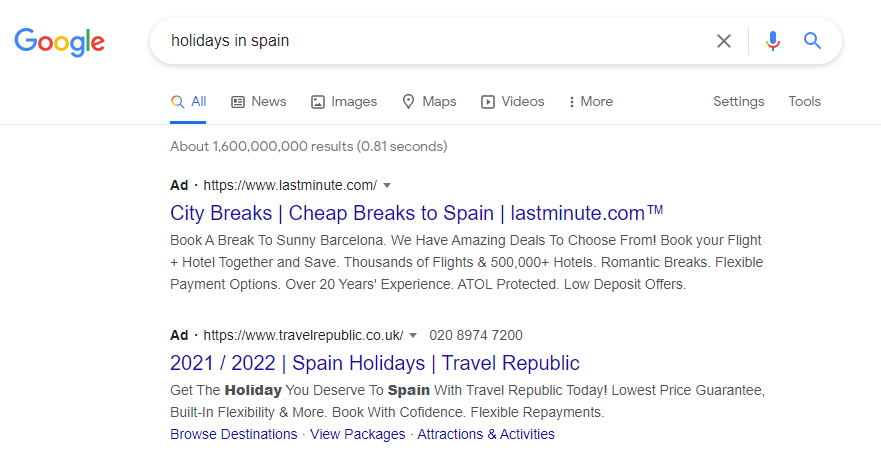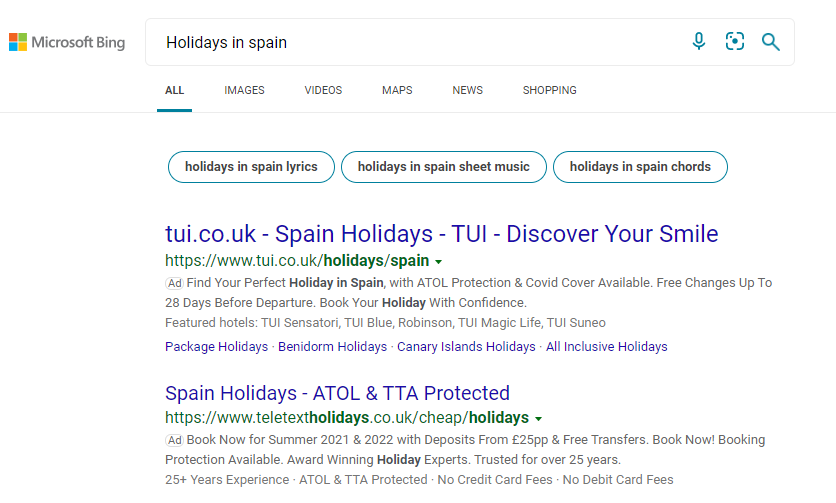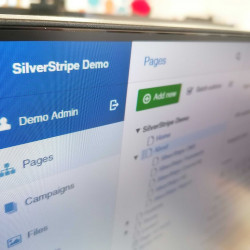Even if you haven't heard of pay per click advertising, chances are, you've seen it or even used it without knowing.
What is Pay Per Click (PPC)?
It's exactly what it says it is - you pay for each click. You'll see these types of ads on a search engine results page (SERP), social media, in videos, on shopping or news websites, and more.
Naturally, because of where they can be seen, they come in a variety of formats, including -
-
Text - normally just a title, link and description, but can contain things like reviews

-
Images - can be static or animated (like a GIF), and come in a variety of sizes. Can even be seen in videos
-
Video clips - usually seen before a video starts, but could be midway through
-
Product adverts - often mixed with other types of ads (like the text PPC ads) but contain more information about a specific product, like prices, images, etc.

How does PPC work?
I'll speak in general terms as each set-up has a slightly different take on things.
When you're setting up an ad, you give the ad company (whether that's Google, Bing, Facebook, or someone else) all the details needed. You can create multiple ads and group them together to target specific keywords or audiences.
If you're a photographer, for example, you could have a campaign running for 10% off new bookings. In this campaign, you could have groups for specific keywords or groups of people, for example, newly engaged or new baby. That group then splits down into the individual ads which could use a different image or different title to help focus on the target audience.
There's usually an option for re-marketing too. With the help of some code and cookies (the little data files, not the yummy ones) you can "track" the user's activity. I've put this in inverted commas because you can't specifically track individuals, but rather target them, and the PPC platform handles the rest behind the scenes.
Curious how remarketing works? Go to a well-known furniture site and search for a wardrobe, do a bit of browsing, view a product or two. Then go elsewhere, like a news website, that typically has quite a few ads. It's possible the same furniture site is showing you ads, even with the same products you looked at. Welcome to remarketing!
How much does PPC cost?
How long is a piece of string?
That's not helpful, I know, but in short - it depends.
PPC typically works on a bidding system, where you say how much you're willing to pay per click. The prices differ based on the competition for the keywords and audience you're targeting.
A keyword could cost as little as £0.50, or as much as £25.00 per click, or even more - it varies that much.
If there are more people competing for the same keywords, chances are, the prices will be higher.
But, that doesn't mean it's out of reach, because Google, as an example, uses various factors to calculate the cost, including the relevance of the ad, the text, and even the web page it links to.
With that in mind, it's actually possible for a small business to perform better than some of the bigger brands!
Will FLoC affect PPC?
FLoC is a proposal that's been put forward by Google to change the way people are tracked across the web. In short, now you can be tracked as an individual (but not personally identified) for the purpose of remarketing.
FLoC (or Federated Learning of Cohorts) puts people into groups and the ads are targeted to the group. They're still relevant, they're still based on what you're searching for and what you've been looking at, but the way you're tracked would be different.
It's still early days for FLoC, but I don't foresee any differences to the end-user (the person viewing the ad). But time will tell!
Is PPC right for my business?
Whether PPC is right for your business, or not, really does depend on your target audience and your goals.

It doesn't always need a big budget to run it, and if your expectations are on par with your spend, then it could very well work for you.
What I would suggest is to talk to a marketing professional to see how it could fit into your marketing plan and how it could work for your business.





